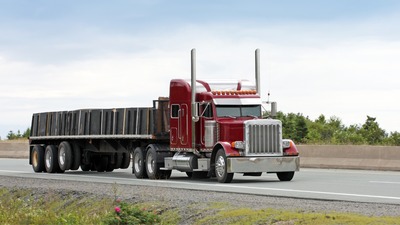When it comes to safety and performance on the job, selecting the right pair of work gloves is not just a matter of comfort—it's essential. Truck drivers and tow operators face unique challenges every day, from handling heavy, abrasive equipment to working in all weather conditions. This guide will help you navigate the vast world of work gloves, ensuring that you pick the pair that best fits your needs on the road and in the field.
Identifying Your Needs: Gloves for Different Tasks
The first step in choosing the right work gloves is understanding the diverse conditions and tasks that truck drivers and tow operators encounter. From maneuvering heavy chains and cables to operating machinery or performing maintenance, each activity may require a different level of protection, dexterity, and tactile sensitivity. Identifying the specific needs of your daily tasks is crucial in selecting a glove that won’t hinder your performance. For instance, drivers handling hazardous materials may prioritize gloves with chemical resistance, while mechanics may need gloves that allow for precise movements when repairing parts. The key is to assess the frequency and nature of each task to ensure your gloves provide adequate protection without sacrificing functionality.
Material Matters: Finding the Right Fit and Durability
When it comes to work gloves, the material is everything. Leather gloves, often made from cowhide, pigskin, or goatskin, offer durability and dexterity, making them suitable for a variety of tasks. Synthetic gloves, on the other hand, including nitrile and latex, provide resistance to chemicals and abrasions but may lack the breathability and comfort of their leather counterparts. For those in colder climates, insulated gloves are a must-have to keep hands warm and responsive. Meanwhile, in warmer regions, breathable materials such as cotton blends can prevent hands from becoming overheated while still providing protection.
Comfort and Dexterity: Choosing Work Gloves That Don't Compromise
A glove's fit and flexibility are critical to maintaining dexterity on the job. Gloves that are too tight may restrict movement and cause discomfort, while too loose gloves can slip off or hinder precision. Many manufacturers offer gloves in multiple sizes, and features like adjustable wrists can ensure a snug, secure fit. It’s also worth considering gloves with ergonomic designs that mimic the hand's natural position. These designs can reduce fatigue and increase comfort during long shifts, allowing drivers and operators to perform their tasks more effectively.
Safety First: Essential Features for Protective Gloves
For truck drivers and tow operators, safety features such as cut-resistance, puncture-resistance, and enhanced grip surfaces should not be overlooked. Gloves equipped with these features can prevent injuries from sharp edges, broken glass, and slippery surfaces. Moreover, high-visibility gloves with reflective materials are advisable for those working night shifts or in low-light conditions, ensuring that operators remain visible to other crew members and traffic.
The Best Work Gloves for Winter: Keeping Warm on the Job
Working in winter conditions presents its own set of challenges, requiring gloves that offer both warmth and functionality. Look for gloves with a waterproof outer layer to keep hands dry, and an insulated lining to retain heat without sacrificing grip or dexterity. Additionally, gloves with extended cuffs can provide extra warmth by sealing out cold air and snow. Features such as touch-screen compatibility can also be beneficial, allowing drivers to operate electronic devices without removing their gloves.
Maintenance and Care Tips for Long-Lasting Gloves
Proper care and maintenance will extend the life of your work gloves, saving you money and ensuring they continue to offer optimal protection. Regularly inspect gloves for signs of wear and tear, and clean them according to the manufacturer's instructions to prevent degradation of materials. For leather gloves, applying a leather conditioner can help maintain their flexibility and prevent drying and cracking. Storing gloves in a dry, cool place will also prevent mildew and material breakdown.
Top Picks and Recommendations
With so many options on the market, it can be overwhelming to choose the perfect pair of work gloves. For overall durability and flexibility, many professionals prefer leather gloves from reputable brands. For those in need of chemical resistance, nitrile gloves offer excellent protection. If you're working in cold environments, gloves with a thermal lining and waterproof exterior are indispensable. Reading reviews and consulting with peers can also provide valuable insights into which gloves are the best fit for your specific requirements.
Safeguard Your Hands, Enhance Your Work
Whether you're traversing icy roads as a truck driver or hooking up a vehicle for a tow in the blistering heat, the right work gloves can make all the difference. They not only protect your hands from harm but also enhance your ability to perform intricate tasks with ease and confidence. Remember, investing in a high-quality pair of gloves is investing in your own safety and efficiency on the job. Make the choice that best suits your professional demands and personal comfort.





